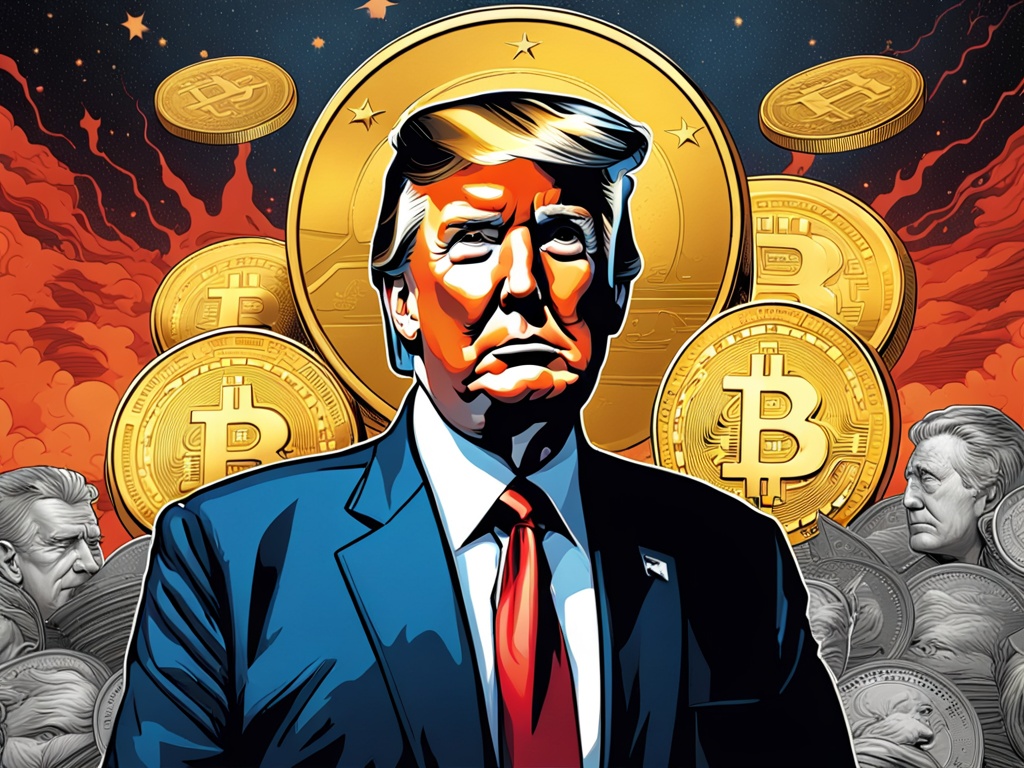Is the Crypto Market Truly a Tool for Wealth Redistribution or Just a Billionaire Playground?
When you take a step back and really dive into the complexities of the cryptocurrency world, there’s a lot to unpack, especially with the recent discussions ignited by the likes of TIME’s Sam Gustin. With figures like Nobel Prize-winning economist Joseph Stiglitz weighing in, it seems we’re at a crossroads in understanding crypto’s role in today’s economy. So, let’s take a closer look at this landscape, shall we?
Key Takeaways:
- Experts warn about potential conflicts of interest linked to cryptocurrency and political power.
- Contrasting views exist on whether crypto is a tool for wealth redistribution or merely benefiting the wealthy.
- Cryptocurrencies like Bitcoin and Ethereum exhibit significant growth, showcasing the market’s volatility and potential gains.
The Warning Bells: Can We Trust the System?
In his piece, Gustin shared Stiglitz’s views that there’s a potential risk of "self-dealing" when powerful figures like Donald Trump get involved with cryptocurrencies. It makes you wonder if there’s a genuine concern about conflicts of interest or if there’s something larger at stake. Stiglitz mentioned that this isn’t just about understanding economics—it indicates a mindset among leaders who might lack the awareness of how their decisions impact the economy. It’s terrifying to think that an entire segment of our financial system could be influenced by players who don’t grasp the level of complexity involved.
What this means for investors:
- Vigilance is Key: Keep a pulse on political movements and how they intertwine with the cryptocurrency market.
- Research Thoroughly: Always dig into who’s pushing for crypto regulations or involvement and consider their motives.
The Populist Argument: Can Crypto Save Us?
The debates surrounding crypto often come down to its populist appeal. Supporters argue that, contrary to traditional banking systems, cryptocurrencies democratize wealth generation. These digital currencies empower everyone—not just the affluent—by providing access to decentralized finance. Stiglitz’s assertion that traditional financial structures have led to greater economic inequality gets some pushback from crypto enthusiasts who believe that the current financial structure favors the wealthy.
Let’s be honest here: when you think about it, the advantages of debt-based economies often favor those who have a foot in the door of the elite. If you’re not in that club, forget about leveraging positions that allow for wealth accumulation. But cryptocurrencies were designed to open these gates wide, right?
A bit of humor for you: If the banks had a theme song, it would probably be “Money for Nothing”—a tune that resounds differently when you’re sitting on the other side of the ATM.
As an investor, maybe it’s time to ponder:
- Are we really building a future where wealth can be more equitably distributed?
- Is crypto your chance to get in on something that could change all the rules?
Market Dynamics: What’s the Current Pulse?
Bitcoin, for instance, has emerged as a beacon of volatility and opportunity. A year ago, it was trading at $43,000; today, pint-sized Bitcoin has more than doubled that value, reaching $103,000. That means investors who hopped on the Bitcoin train early this year saw a whopping 130% return. For the average investor, that’s a mouth-watering prospect!
Now, whether that upside mitigates the risks involved is another discussion. Sure, there are concerns about economic inequality, but here’s the kicker: it’s not just the rich who can invest in crypto. Regardless of your financial situation, you can enter the market at virtually any level. And that’s revolutionary!
Practical Tips for Investors:
- Set Clear Goals: What do you hope to achieve in the realm of crypto? Short-term gains or long-term hold?
- Stay Informed: Follow trends and news closely. The crypto space moves faster than a toddler on a sugar rush.
- Don’t Fear the Dip: Prices fluctuate wildly, but remember that the nature of these markets often leads to rebounds too.
Looking Ahead: The Future of Crypto and Power
The crux of it all? We’re witnessing a transformation in how wealth is perceived and accumulated. Cryptocurrency offers a new toolkit for the masses, enabling people from different economic backgrounds to partake in market participation. But the paradox here is palpable. The people who once found themselves at a disadvantage in the traditional system might soon navigate the crypto world with newfound prowess.
As the conversation continues—where experts warn us about potential pitfalls while advocates champion the freedom and opportunities crypto brings—the biggest question remains: Will cryptocurrencies pave the way for a more equitable financial landscape, or will they be co-opted by the very powers they were designed to disrupt?
So, let’s reflect. In balancing the powerful allure of crypto with the reality of the current economic system, how will you choose to position yourself in this rapidly evolving landscape?





 By
By
 By
By

 By
By
